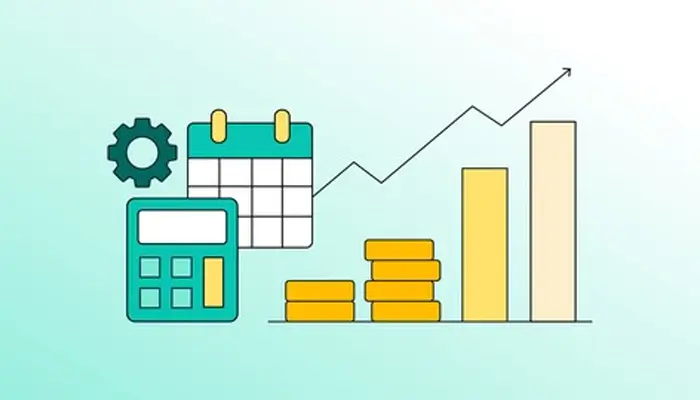Strategies for Saving Money at Home
Anúncios
Many people aim to save money at home. Achieving this goal requires dedication and ingenuity to turn plans into savings. Cutting household costs involves strategies like managing energy use and controlling expenses on groceries and entertainment. By adopting a lifestyle that values saving without compromising quality of life individuals and families can establish a financial safety net, for expenses and future investments.
Anúncios
A crucial aspect of saving money at home is keeping an eye on expenses. This means being aware of where every dollar goes helping to identify spending habits and create budgets. Being frugal doesn’t mean living without; it’s about making choices that support objectives. For example cooking meals at home or handling household repairs can be opportunities to save money.
Furthermore todays consumers have access to tools and services that make saving money easier—like cash back credit cards for purchases and shopping at stores for quality items, at lower prices. When used together these methods create a plan, for money management that if followed diligently can result in significant long term savings.
Anúncios
Budgeting Basics
When people handle their money wisely they increase their chances of reaching outcomes and maintaining stability in the long run. An essential part of managing finances is budgeting, which starts with establishing financial objectives. These goals could involve saving for retirement buying a house or clearing debt. By defining these targets individuals can map out their journey. Prioritize how they spend and save money.

The second key aspect of budgeting is keeping track of expenses. This includes recording all sources of income and expenses both fixed and variable. By monitoring their spending habits individuals can pinpoint areas where they can reduce expenses and redirect funds towards achieving their financial goals. Furthermore tracking expenses helps individuals stay responsible and make adjustments to ensure they stay on course towards meeting their targets. Effective budgeting gives people the tools to manage their finances effectively and strive towards a future.
Setting Financial Goals
Establishing goals is crucial, for successful budgeting. It’s important to begin by outlining both term and term financial aims, which could vary from saving up for a getaway to preparing for retirement. It’s essential that individuals make sure these objectives are Specific, Measurable, Achievable, Relevant and Time bound (SMART) in order to enhance the chances of achieving them.
Tracking Expenses
In order to manage your finances effectively it’s important to keep track of your spending. This includes keeping an eye on all the money going out to know where each dollar is going. Families can classify expenses into essentials, like housing (50% of income after taxes) savings (20%) and optional spending (30%) following the guideline of the 50 20 30 rule. Utilizing tools such as budgeting applications or basic spreadsheets can be helpful, in this task.
- Essentials: Rent, utilities, groceries.
- Savings: Emergency fund, investments.
- Discretionary: Dining out, entertainment.
Keeping track of expenditures enables individuals to identify areas where they can cut back and redirect funds toward their financial goals. Regularly reviewing and adjusting the budget ensures that spending aligns with goals and makes room for changing financial situations.
Everyday Savings Strategies
Incorporating money saving tips into your habits can really boost your financial well being. Simple changes, like cooking meals at home taking transport and taking advantage of discounts can make a difference. Bringing lunch to work of buying it can save you a lot in the run. It’s also helpful to review your subscriptions and cancel any you don’t need.

Automating your savings by setting up transfers can help you consistently save money without effort. This way you can build up an emergency fund. Work towards your long term goals effortlessly. Being mindful about spending, like waiting before making essential purchases can curb impulse buys and improve your financial situation. By incorporating these money saving strategies into your routine you can boost your savings while still enjoying life to the fullest.
Smart Grocery Shopping
Smart grocery shopping is crucial for keeping household expenses in check. To maximize savings, one should consider:
- Creating a meal plan: Align this with weekly sales at local supermarkets.
- Using coupons and discount apps: Combine these with store specials for extra savings.
- Purchasing store brands: Often, these products offer comparable quality at a lower price.
- Buying in bulk: Opt for bulk purchases for non-perishable items or products used frequently.
Energy Efficiency at Home
Improving energy efficiency at home is not only good for the environment but also for one’s wallet. Strategies include:
- Upgrading to LED bulbs: This can provide significant savings in electricity over time.
- Sealing leaks and drafts: Ensuring good insulation can reduce heating and cooling costs.
- Installing a programmable thermostat: This can optimize heating and cooling schedules to save energy.
Reducing Utility Bills
To successfully reduce utility bills, households should focus on:
- Monitoring water usage: Fixing leaks and installing low-flow fixtures can lead to considerable savings.
- Unplugging idle electronics: Devices still draw power when plugged in, even if turned off.
- Choosing efficient appliances: When replacing appliances, opt for those with high energy ratings.
DIY and Home Maintenance
Engaging in do-it-yourself projects and maintaining a routine upkeep schedule can significantly minimize home maintenance costs while promoting a sustainable and clutter-free living environment.
Routine DIY Maintenance
- Water and Vinegar Glass Cleaner: Mix 2 cups of water with 1/2 cup of vinegar to create an effective glass cleaner.
- Baking Soda All-purpose Cleaner: Combine 4 tablespoons of baking soda with 1 quart of warm water for a versatile cleaning solution.
- Simple Fixes: Homeowners can easily handle small repairs such as unclogging drains or replacing doorbells to avoid unnecessary service fees.
- Water-Efficient Fixtures: Installing new models of toilets that have the EPA’s WaterSense label can save over $140 annually in water costs.
Minimalist Living and Decluttering
- Reduce Possessions: By minimizing belongings, homeowners can lower cleaning times and maintenance needs, leading to both time and cost savings.
- Maximize Space: Decluttering results in a more spacious and organized living area, reducing the need for additional storage solutions and repairs related to overcrowded spaces.
Long-Term Savings Plans
Range financial strategies, for homeowners involve making decisions that bring about monetary advantages over the long haul. One effective approach includes investing in energy upgrades like panels, insulation or energy saving appliances. These investments can notably lower utility expenses. May even qualify for tax breaks or refunds. With time the savings from reduced energy costs can balance out the upgrade costs. Boost the propertys resale worth.

Another aspect of term planning entails regular upkeep and timely fixes. By staying on top of maintenance tasks such as gutter cleaning, HVAC system servicing and addressing issues before they escalate into concerns homeowners can avert expensive repairs in the future. Moreover homeowners stand to gain from refinancing their mortgage during periods of interest rates potentially saving thousands of dollars in interest payments throughout the loans duration. Through these decisions and others homeowners can fortify their standing, in the long run while enhancing their propertys value.
Investing in Home Improvements
Improving your home can result in savings in the run. Upgrading to energy options, like glazed windows or better insulation helps cut down on heating and cooling expenses over time. Likewise opting for appliances, with Energy Star certification reduces electricity consumption resulting in decreased utility bills.
- Energy-Efficient Appliance Example:
- Old Appliance Energy Use: 800 kWh/year
- New Appliance Energy Use: 400 kWh/year
- Electricity Savings: 400 kWh/year
Homeowners can also consider solar panel installations which offer savings on electricity and potential tax benefits.
Planning for Major Purchases
Planning for major purchases, like vehicles or home renovations, involves setting aside funds consistently over time. One approach is to create a dedicated savings account for the specific purpose. This account could be set up to automatically receive a portion of monthly income.
- Savings Example for a Vehicle:
- Cost of New Vehicle: $30,000
- Years to Save: 5 years
- Monthly Savings Goal: approximately $500/month
By saving in advance, homeowners can avoid or reduce the need for financing, which can result in significant interest savings.





